Living in the UK offers plenty of prospects for expats. While it might not have the same attractive weather as southern Europe, it makes up for this through its quality of living and amazing scenery.
In this article, we’ll cover what it’s like to live in the UK. We’ll look at immigration options, where to live, and the main pros and cons of living in this prosperous nation.
In this guide:
- UK's highlights.
- The legalities of moving to the UK: options for a long stay or residency.
- The cost of living: monthly expenses and rental costs.
- Healthcare and education.
- Buying real estate.
- Where to live in the UK – an overview of the most popular expat locations.
- Tips for settling down and interesting facts.
Secure Peace of Mind with Best-Value International Health Coverage
International Citizens Insurance provide free, no-obligation quotes from the leading international health insurance providers with plans tailored to meet your needs. Trusted by thousands of expats worldwide.
UK's highlights
By most measurable standards, the UK is a good place to live. It offers personal security, decent employment opportunities and education, and a stronger-than-average sense of community. Add in varied scenery and high quality of living, and you could do a lot worse.
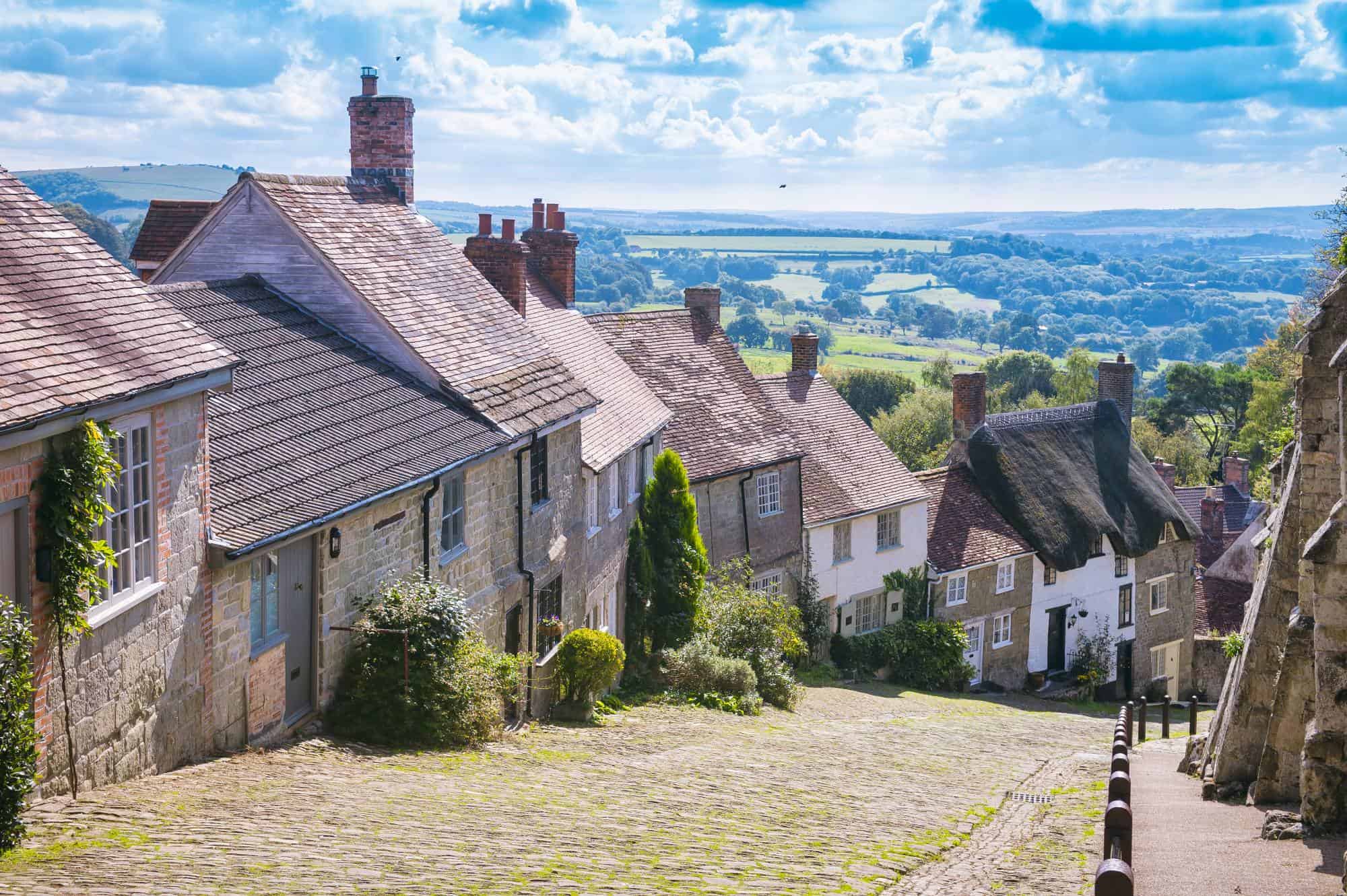
According to the OECD Better Life Index, the UK ranks above average in most quality-of-life areas. Employment rates are above average, as are environmental quality and healthcare. While these aren’t the most interesting, they certainly make a difference when you’re looking to relocate.
Despite what you might see in the news, the UK is generally a tolerant country. Actual incidents of intolerance against others are low, and anti-discrimination laws have you covered in the workplace and your personal life.
The UK is also one of the best countries to earn a good income if you are a professional expat. There's a special visa program for skilled workers wanting to move to the country. Also, its thriving startup scene is attracting more and more entrepreneurs and startups from all over the world.
Usually, at this point, we would sell a country’s weather as one of its more desirable aspects. Unfortunately, we can’t do this for the UK, as its weather is wet. It’s not south enough to enjoy a Mediterranean climate, and it’s not north enough to get much snow. As a result, there’s lots of rain and cloud.
Temperatures (infrequently) peak around 35 degrees C in the summer but can drop as low as -10 in the winter. One benefit of so much rainfall is that everywhere is incredibly lush and green. So, if you like verdant nature and don’t mind the rain, the UK is a good place to live.
The legalities of moving to the UK
Your options for migrating to the UK largely depend on your country of origin and reason for moving. Freedom of movement rules no longer apply to EU countries, meaning if you are an EU citizen, you have to follow the same process as non-EU citizens.
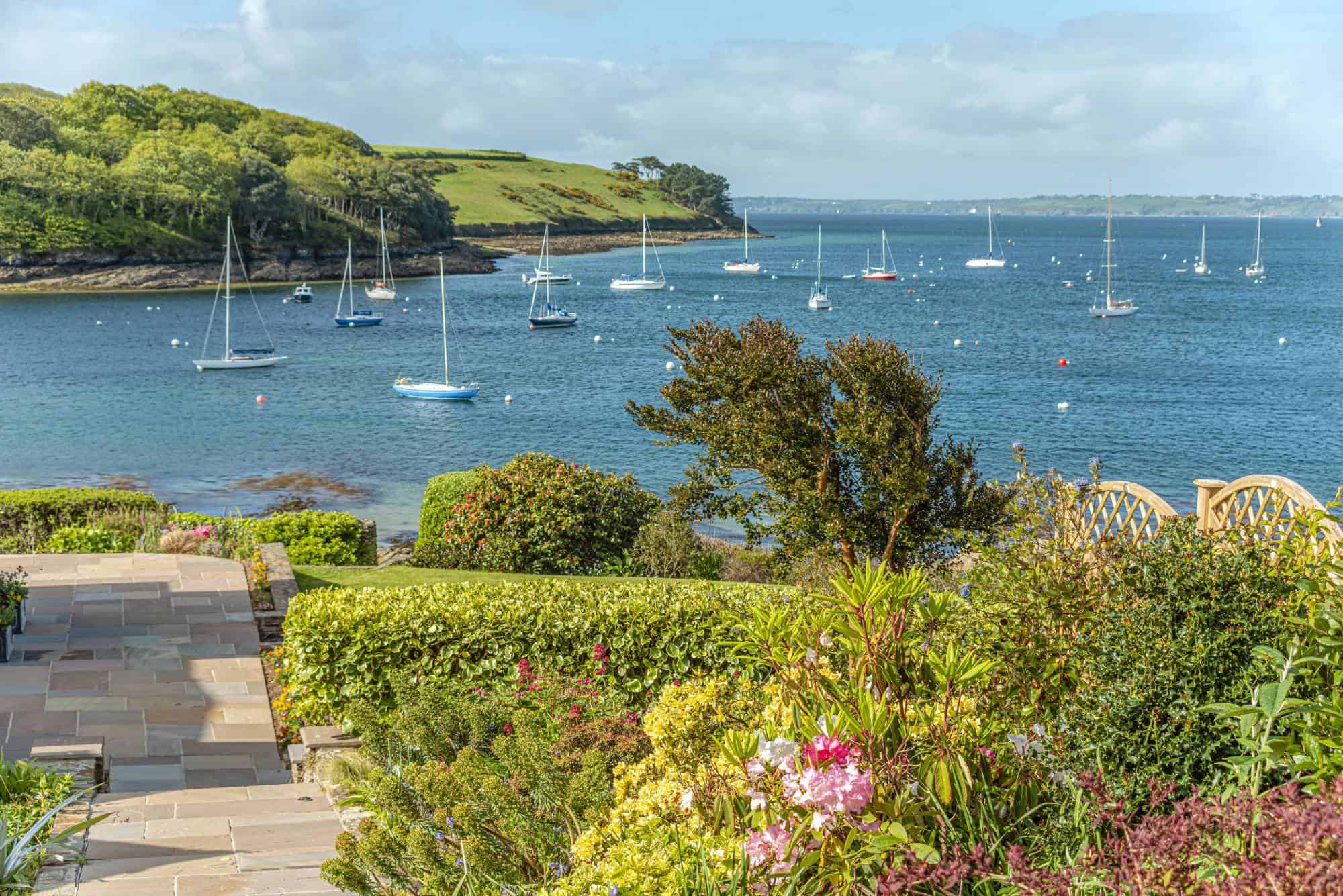
The main visa categories are:
- High Pitential Individual vis
- Skilled worker
- Student, family, and short-stay visa
Long stay without becoming a resident
If you want to spend some time in the UK without becoming a resident, a UK Tourist visa is the best option.
A UK tourist visa, also known as a Standard Visitor Visa, allows you to travel to the United Kingdom for tourism or to visit family and friends.
Here are the key details:
- When applying for a visa, you can choose the number of years you want the visa to be valid for. The minimum number of years is one, and the maximum - is ten.
- With this visa, you can only spend up to 6 months in a year in the UK.
- During this time, you can enter and exit the UK multiple times as long as your visa remains valid.
Requirements:
- Valid passport: Your passport should be valid for at least six months beyond your intended stay in the UK.
- Travel itinerary: Prepare a detailed plan outlining your travel arrangements, including accommodation bookings and intended tourist activities.
- Proof of financial capability: Demonstrate that you have sufficient funds to cover your travel expenses, accommodation, and other related costs during your stay.
- Letter of invitation (if applicable): If you are visiting friends or relatives in the UK, they may need to provide a letter of invitation confirming their details, their relationship with you, and their willingness to accommodate you during your stay.
- Ties to your home country: Provide evidence that you have strong ties to your home country, such as stable employment, property ownership, or family responsibilities. This helps assure the authorities that you will return after your visit.
Application process: The application process involves completing an online application form, paying the necessary fees, and attending a biometrics appointment at a visa application center in your home country.
You may also need to submit supporting documents, such as bank statements, employment letters, or flight itineraries.
Note: with this visa, you can rent short-term (holiday lets), buy a poperty, rent a car, and drive in the UK with a valid driving license from your home country. You can't rent long-term, open a bank account, or use public healthcare.
Resident visas
For a UK Skilled Worker Visa, you must have a job offer lined up from an approved employer before you arrive in the UK. The visa can last up to 5 years before it’s due for renewal, although this depends on your role and a few other factors.
A family visa covers you if you’re marrying a UK citizen or have close family who already live lawfully in the UK. You can switch to a family visa under certain conditions, too.
The easiest way to check what kind of visa you need is with the government’s visa checker. It’s a list of simple questions that’ll give you a rough idea of the application process. The UK now uses a points-based system for eligibility, which, while clearer, does make things stricter.
There is no specific retirement visa in the UK. If you plan to retire to the UK, your options are a Tier 1 or Tier 4 visa, although it’s worth speaking to a UK consulate or immigration professional for more specific information.
Other options:
Commonwealth Citizens
Commonwealth citizens have a few more options aside from standard visas. The first is the Right of Abode, which generally applies to older people and retirees. The second option is an ancestry visa, which has fairly specific requirements.
Moving to the UK as a US citizen
American citizens can live, travel, and study in the UK for up to 6 months without a visa. You can’t work, so you’ll need enough money to cover yourself for this period.
If you want to work or live permanently, you must follow the visa rules described above. In short, you’ll either need to invest money, have a family living in the country, or have a skilled job lined up.
The Right to Abode does apply to US and Canadian citizens. Providing you can remain in the UK for 5 years, you can then apply for Indefinite Leave to Remain before moving onto full citizenship status.
The cost of living
Yes, living in the United Kingdom is rather expensive. Overall, your bills will depend on your chosen location, and housing will be your most considerable expense.
The cost of living in London is the highest in the country. Here is how London compares to other major cities when it comes to average monthly expenses:
| Rent | Utilitie | Transport | |
| London | £2,000 | £190 | £160 |
| Edinburgh | £1,400 | £136 | £56 |
| Cardiff | £1100 | £190 | £53 |
| Belfast | £810 | £70 | £60 |
| Manchester | £1160 | £160 | £74 |
| Birmingham | £1100 | £150 | £65 |
| Leeds | £950 | £145 | £62 |
| Glasgow | £920 | £110 | £60 |
| Liverpool | £880 | £130 | £70 |
| Sheffield | £810 | £145 | £65 |
Average monthly expenses in UK cities
Food and grocery
Regarding food and grocery shopping in the UK, the average grocery shopping bill for a family of 3 is £350 a month. Food and clothing are generally inexpensive.
Healthcare costs
Your healthcare is publicly funded (paid out of your taxes), and you don't need to buy health insurance. However, you might want to get dental insurance, which usually starts at about £30 per couple per month. All children under 18 are eligible for free dental care by NHS.
Childcare costs
Children aged 3 and 4 are entitled to 30 hours of state-funded childcare per week. A part-time day nursery for a child under two years old costs, on average, £150 per week.
You will pay approximately the same for a holiday club for your child (a childcare facility looking after children during school holidays).
Healthcare in the UK
Healthcare in the UK is universal and free at the [png of use for all legal residents.
When applying for resident visas, the applicants pay an NHS surcharge to be able to access healthcare services. The fees are from $470 up to £630 a year, depending on the type of visa you are applying.
You do not have to pay a surcharge if you are coming on a tourist visa. Ypu will be picked up by the NHS in case of emergency, but it is highly recommended to have some kind of travel insurance or full health insurance.
Registering with a doctor
To register with a local General Practitioner (GP) in the UK, please follow these steps:
- Find a GP practice near you: use the NHS website to do so.
- Contact the GP practice: once you have found a practice, call them to inquire about the registration process. The receptionist will guide you through the necessary steps.
- Obtain the required documentation: Most GP practices will ask for proof of your identity and proof of address and residence.
- Book an appointment: After completing the initial registration over the phone, the GP practice will usually ask you to come in for a new patient appointment.
Schools and education
All legal residents have access to UK local schools and free state-funded education. However, you can also choose an alternative to a state school.
Independent Schools: Also known as private schools, independent schools charge fees for education and are not funded by the government. These schools have the freedom to set their own curriculum, teaching methods, and admission criteria. Independent schools can be further classified into:
International Schools: Cater to students from various nationalities and often follow an international curriculum, such as the International Baccalaureate (IB) or the American curriculum.
Academies: Academies are state-funded schools that operate independently, often with a specialism in a particular subject area.
Grammar Schools: These selective state schools admit students based on their performance in entrance exams, typically taken at the age of 11 or 16.
Buying real estate
As a foreign national, you can buy property in the UK without legal restrictions. However, be prepared to undergo rigorous identity checks and money laundering regulations.
Another thing to note is that buying real estate in the UK does not grant you residency; you still have to apply for a suitable visa to be able to reside in the country.
Here is the average cost of property in the various UK regions:
Note: The average size of a 1-bedroom apartment in the UK is around 45 to 60 square meters (484 to 646 square feet). The average size of a family home is approximately 85 to 100 square meters (914 to 1076 square feet) for a 3-bedroom house.
| Region | 1 bed apartment | Family home |
|---|---|---|
| London | £300,000 | £650,000 |
| South East | £250,000 | £450,000 |
| South West | £220,000 | £400,000 |
| East of England | £200,000 | £350,000 |
| East Midlands | £170,000 | £300,000 |
| West Midlands | £180,000 | £320,000 |
| Yorkshire | £160,000 | £280,000 |
| North East | £150,000 | £260,000 |
| North West | £180,000 | £330,000 |
| Scotland | £160,000 | £300,000 |
| Wales | £160,000 | £290,000 |
| Northern Ireland | £140,000 | £250,000 |
The pros and cons of living in the UK
On the whole, there are more benefits to living in the UK than drawbacks. However, it’s worth weighing up both sides before moving to get a fuller picture of living in any country.
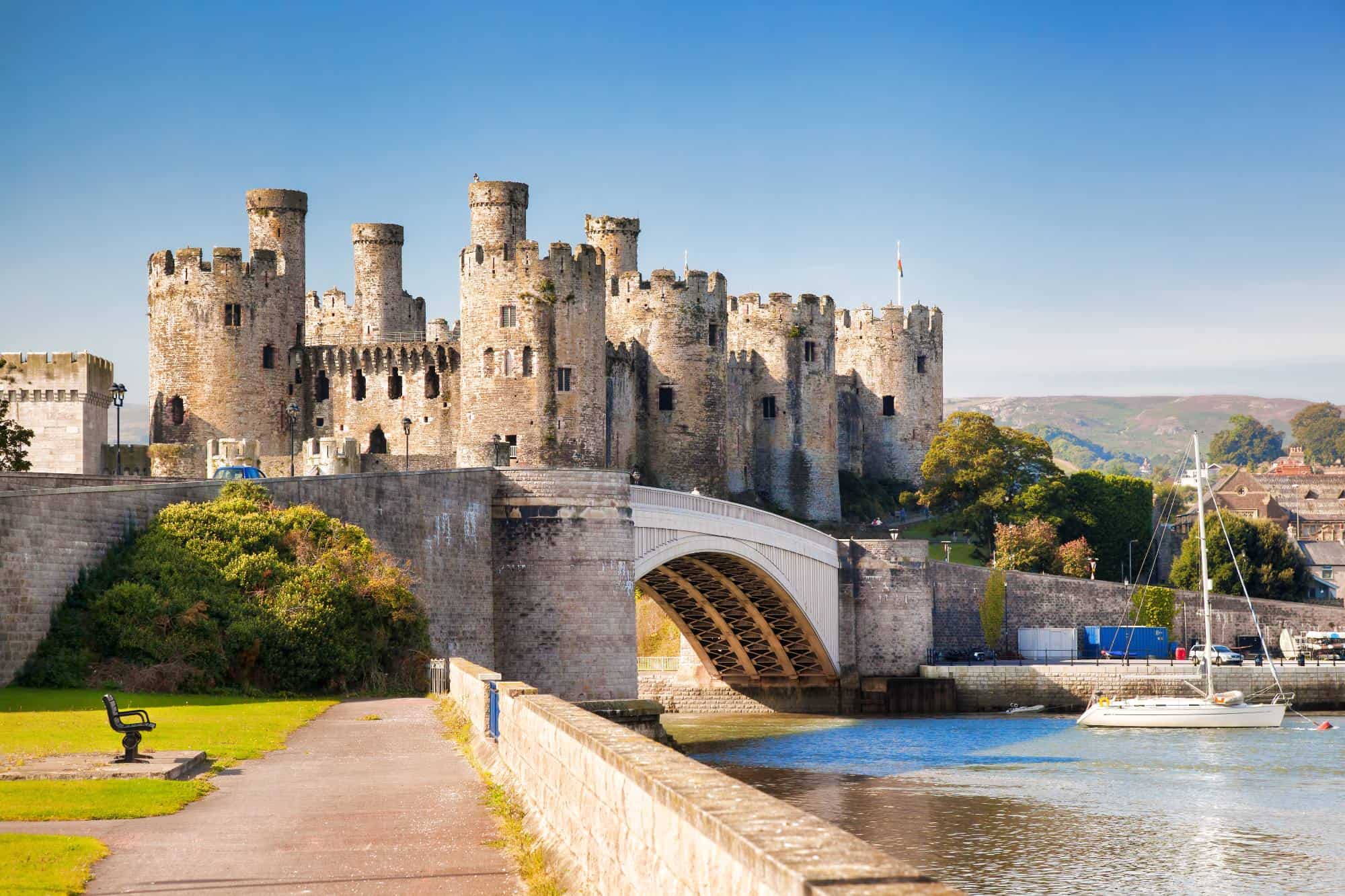
The pros:
1. (Mostly) free healthcare
The NHS (National Health Service) once set the standard for publicly funded universal healthcare free at the point of use. While it’s going through a rough patch, its service remains free for anyone ordinarily resident in the UK. In short, this means anyone living lawfully in the country, including immigrants, has access to NHS services.
2. Inexpensive access to mainland Europe
The UK is well connected to mainland Europe, meaning you can go for a day trip if you want or a longer holiday. Your options include major (and minor) airports, the Eurostar, the Eurotunnel, or ferries.
3. Old-school charm
The UK has a reputation for old-school charm, particularly in more rural areas. If you’re a fan of Downton Abbey or Poldark, you’ll feel right at home in some of the quaint villages.
4. Amazing landscapes
Remember all that rain we mentioned? One benefit it brings is lush and varied landscapes ranging from cliffs and mountains to rolling green fields and crystal-clear lakes. Many are peppered with incredible historic landmarks, some dating back several thousand years. If you enjoy a castle or two, take a trip to Wales, as it has the highest number of castles in the world.
5. Food quality is generally high
Although the UK lacks a native food culture comparable to Spain, Italy, and France, most of its food is high quality. You can shop at farmer’s markets or have produce delivered to your door. You’ll find butchers and greengrocers in most towns, which are generally cheaper than supermarkets.
The cons
1. High cost of living
There’s no point in sugar-coating this one: the UK has a high cost of living. The housing market is, frankly, massively overpriced, and there are huge variations in the cost of living across the UK. London, for example, has its own minimum wage bracket, which should tell you all you need to know.
2. Public transport
While this doesn’t belong entirely on the cons list, there’s more bad than good to say about it. Trains are expensive and subject to frequent delays. Buses are more reliable and, in some areas, are fairly cheap. For getting around, your best option is a car.
3. Cities vs countryside
There’s a noticeable difference between cities and rural areas. Granted, this is true for most places, but access to public amenities is a big one. For example, rural areas might have greater difficulty accessing larger healthcare facilities or usable internet speeds.
4. Brexit
Brexit might be an issue fraught with political implications, but there’s no denying it’s made things harder for would-be expats from the EU. If you are a non-EU citizen, nothing has changed for you, and maybe, in some cases, things have improved as UK employers are no longer forced to give preference to EU nationals.
Where to live in the UK
The UK consists of mainland Great Britain and Northern Ireland. Deciding where to live in the UK depends on many factors, but the biggest one is how much money you’re willing to spend.
Let’s break it down into the four nations for greater clarity.
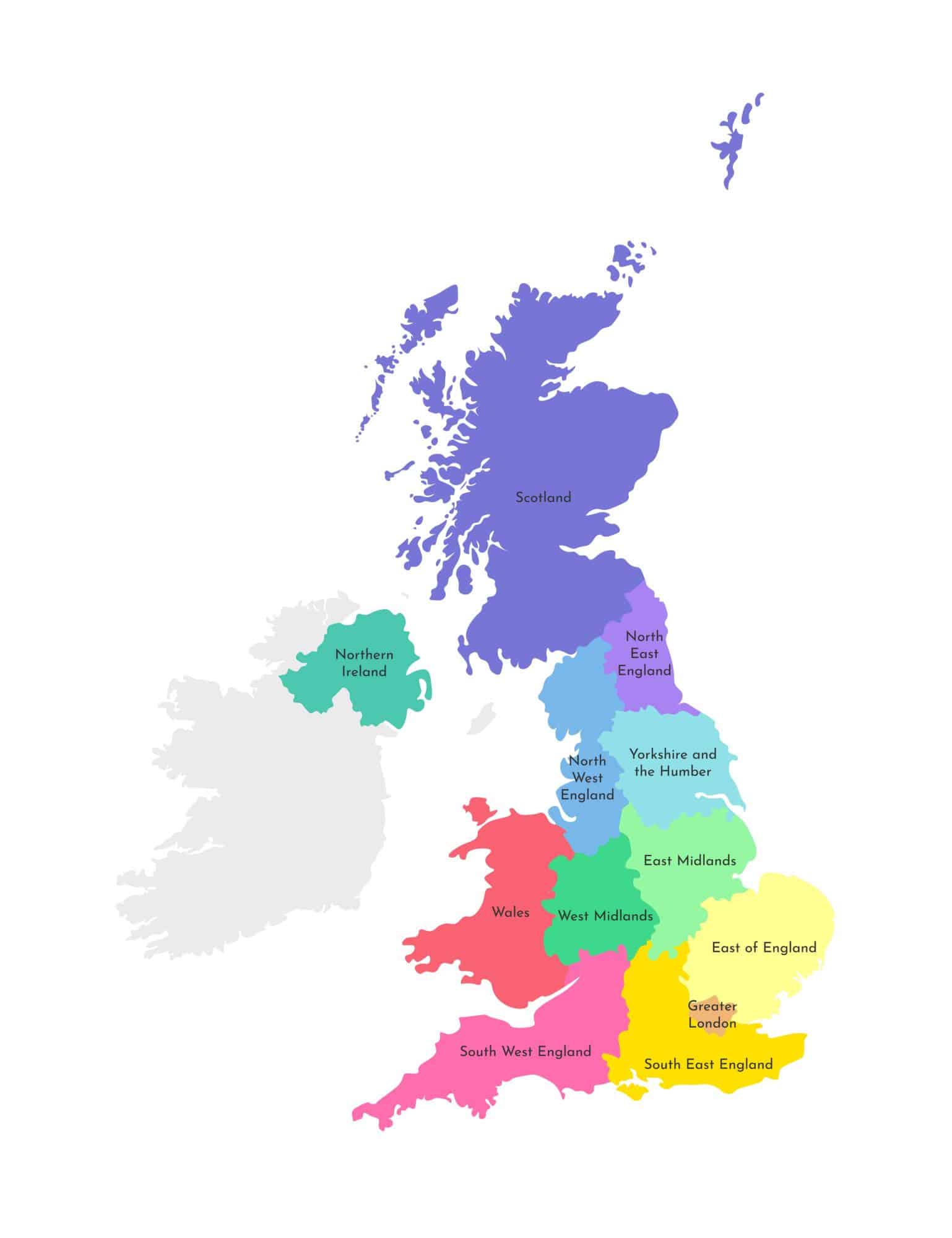
England
England is the largest and most diverse nation in the UK. It’s what many expats consider to be the UK, but this isn’t correct. Within England, you’ll find a wider range of quality of living than elsewhere.
London
London is an obvious choice for many, particularly due to its job opportunities. It’s unlike any other city in the UK because of its size, and many British citizens treat it almost as a country in its own right.
London has (by far) the highest cost of living in the UK. Living in London comes with all the pros and cons you’d expect from a capital city. Many workers prefer to live elsewhere in the UK and commute to their London jobs, as this isn’t particularly difficult.
Southeast England
Outside of London, the south of England has the highest quality of living in the UK. Surrey, Hampshire and Sussex are the most prosperous – and expensive – counties in the south.
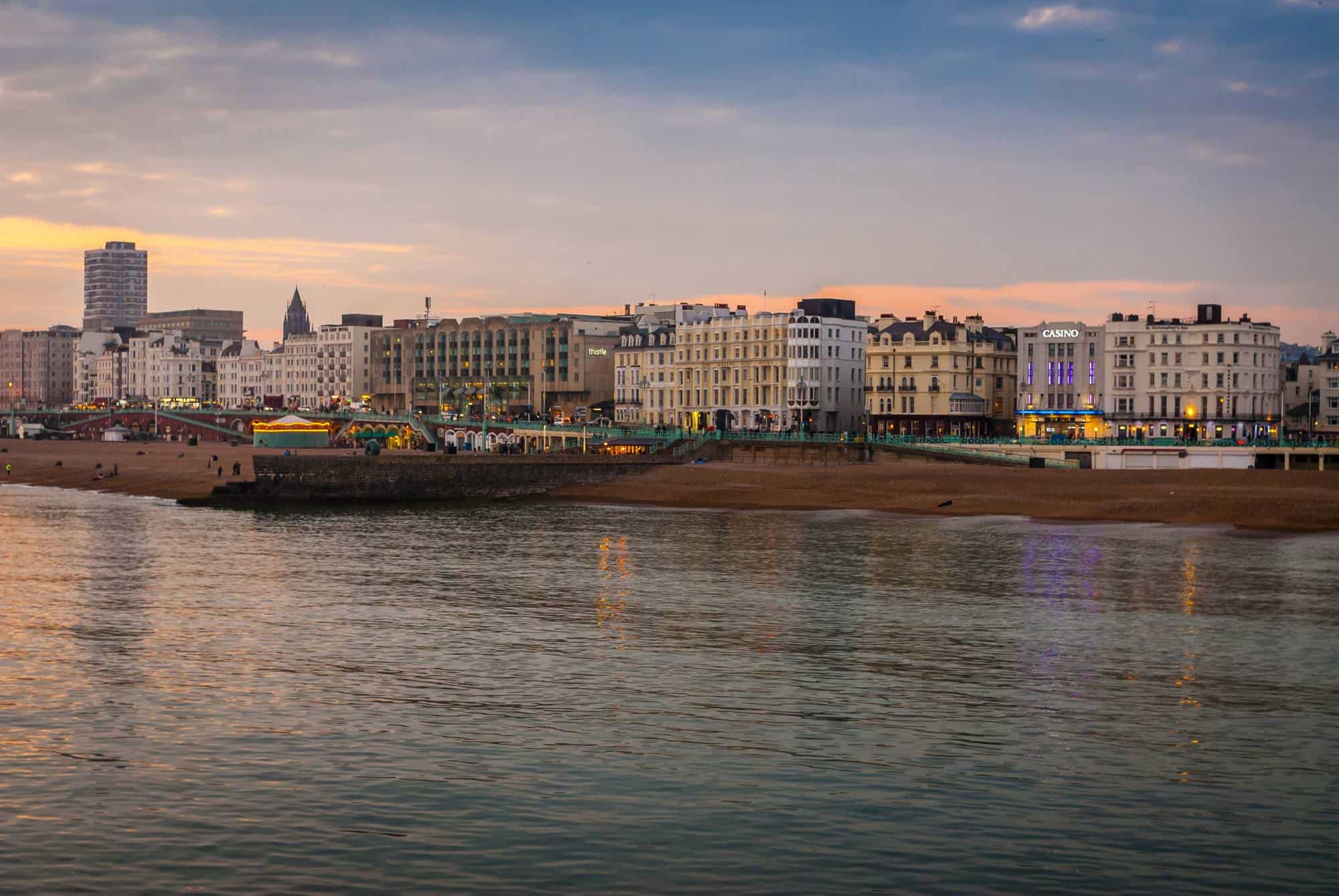
House prices aren’t far below London, but there are some amazing properties to compensate. Despite the prices, this region is a good option for setting up a business because of the connections to London and Europe. It’s also the best area for the most “authentic” English experience.
If you want to be by the sea, the choice is great. Brighton has the best connection with London and is a fashionable place. Our guide on Living in Brighton is a perfect place to learn more about the city.
An hour's train ride from Brighton is Eastbourne, a popular seaside town with more affordable properties than in Brighton. It has a wonderful town center and a fantastic seafront stretching over 4 km.
Hastings is one of the cheapest places in the region while still being relatively close to London (90 minutes by train).
Other popular places are Reigate in Surrey, Petersfield in Hampshire, Farnham in Surrey, Cowes in the Isle of Wight, Amersham in Buckinghamshire, Hurley in Berkshire, Petworth in West Sussex, Cookham in Berkshire, High Wycombe in Buckinghamshire.
The region has plenty of amazing towns and villages, most of them less than a 2-hour drive from London.
Southwest England
The counties of Cornwall, Devon, and Somerset are some of the most picture-perfect places in southwest England. There are, of course, others: Gloucestershire, Bristol, and Wiltshire, but they can't beat Cornwall, Devon, and Somerset in popularity.
The cost of living is among the lowest in the South, but it’s still pretty expensive. It’s perhaps one of the best choices if you want a more peaceful life with stunning views, a sweet climate, and a beautiful coastline at your disposal.
St Ives in Cornwall deserves your special attention as it was named the happiest town in the UK in 2020.
Another place to consider is Topsham in Devon. The town has been regarded as one of the best places to live in the Southwest for its strong sense of community, independence, quirky family-run cafes and coffee shops, and improving amenities.
In Somerset, Frome is a trendy town. It has good schools, stunning countryside close to the Bristol Channel, and an easy commute to Bristol and Bath.
We highly recommend checking out the ever-popular Bristol City if you prefer an urban lifestyle. A brilliant place to call home, with a thriving high-tech economy, vibrant nightlife, and beautiful surroundings. Get to know more about Bristol in our excellent Best Places To Live In Bristol guide, which includes nearby commutable areas.
Other popular urban areas include Bournemouth, Cheltenham, Exeter, Gloucester, Plymouth, and Swindon.
The Midlands
The Midlands include Wolverhampton, Birmingham, and the Black Country.
The quality of living is lower than in the South, but so is the cost. However, the area has experienced a significant economic revival in recent years, so it is a good option for work. It also has the most multicultural communities in the country, making it a fascinating place.
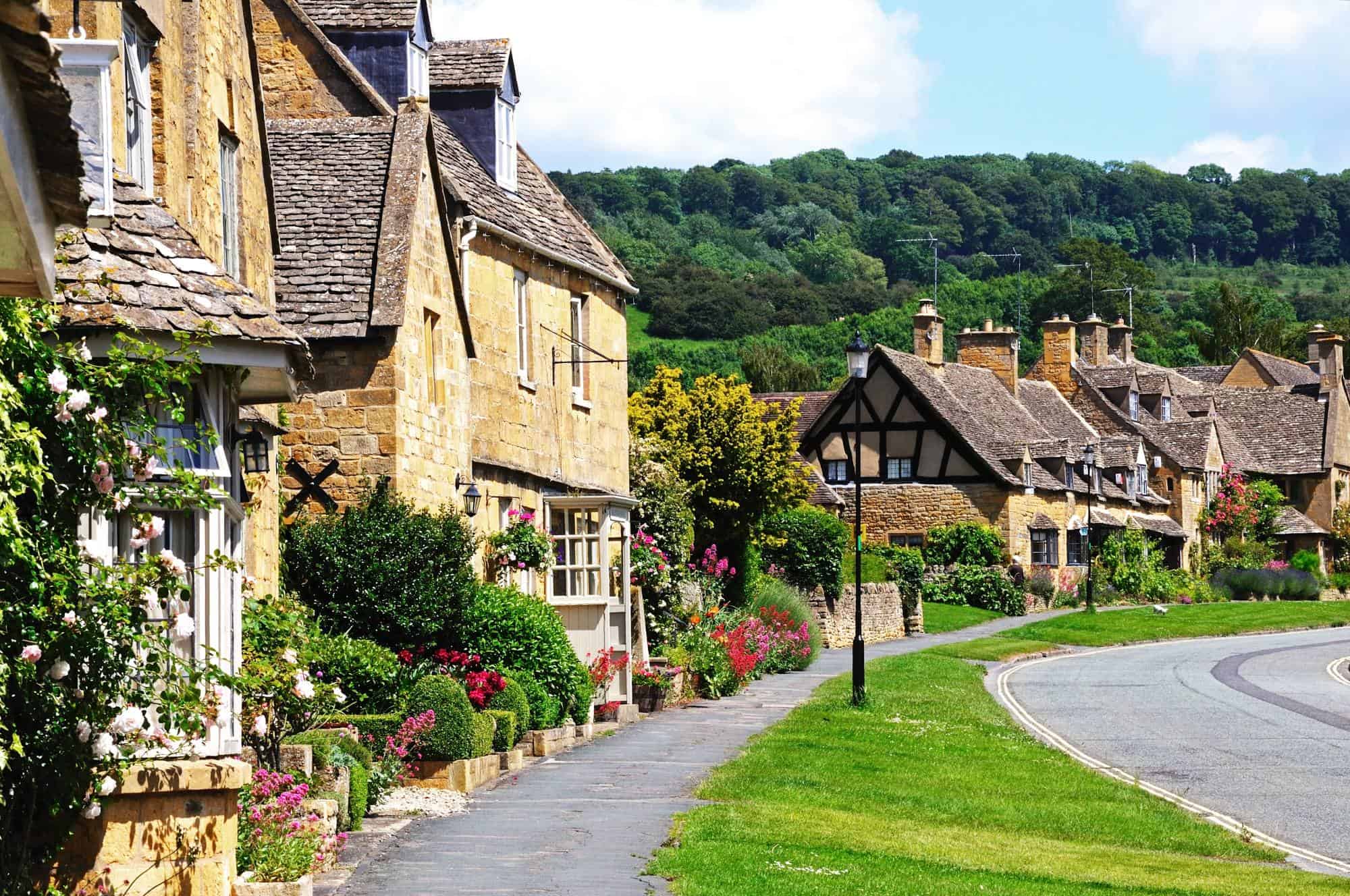
If Midlands cities are a bit too industrial for your taste and you wish to consider smaller towns, you have a lot to choose from.
Shrewsbury in Shropshire is very picturesque, with its Tudor center lined with half-timbered houses. The town has fantastic parks and lovely walks along the river.
Stamford in Lincolnshire has been named the best place to live in the Midlands and is described as “architectural eye candy.” It's also one of the favorite locations in the UK for filming period dramas.
Lincoln is another place that has also been rated as one of the best places to live in the Midlands and the UK.
It's a great place with all the amenities: schools, shops, a hospital, and a pretty high street called Steep Hill. It is very steep, so you need a certain degree of fitness to go up. But if you manage it, the reward is the entrance to Lincoln Cathedral - one of the most spectacular Gothic buildings that held the record for the world’s tallest building for over two centuries.
Northern England
Northern England includes counties such as Yorkshire, Cheshire, and Lancashire. Its distance from London has led to historic inequality, which is currently changing. The area is going through a period of strong economic growth, making it another good option for businesses.
There are some spectacular cities, towns, and villages in Northern England.
York, for starters, is a true star if you can afford it. It's cultured and beautiful, and it has top schools, excellent infrastructure, good travel connections with London, and fantastic restaurants and cafes. It's a brilliant place to raise your children, start your own career, or for an upscale urban retirement.
If you are looking for an affordable, vibrant city, Leeds should be on your list. Leeds's food and drink scene is top-notch, the rent is affordable, and all the facilities you need are here. Besides, Leeds University is one of the top 100 universities in the world.
If you are after seaside living, Yorkshire boasts a long list of pretty coastal towns, including such gems as Scarborough, Bridlington, Filey, Whitby, Sandsend, and Robin Hood's Bay.
In Cheshire, Altrincham is one of the best places to live in the northwest, credited for its parks, excellent transport links, and top-class schools. Bollington and Knutsford are also among the top locations in the area. And of course, you shouldn't forget about Manchester.
If you are moving to Manchester, our guide to The Best Neighbourhoods To Live In Manchester can be a great place to start.
Chester, the Cheshire capital, is great if you don't like big cities but need all urban amenities on your doorstep. In Chester, you will find excellent schools, low crime levels, all the shops, restaurants, and bars you can dream of, and, of course, Chester Zoo.
You will find more information on various locations in England in our guide, Best Places To Live In England.
Wales
Wales is a country of incredible beauty that expats often overlook. Quieter than Cornwall and less crowded than Devon, Wales is full of unspoiled natural beauty.
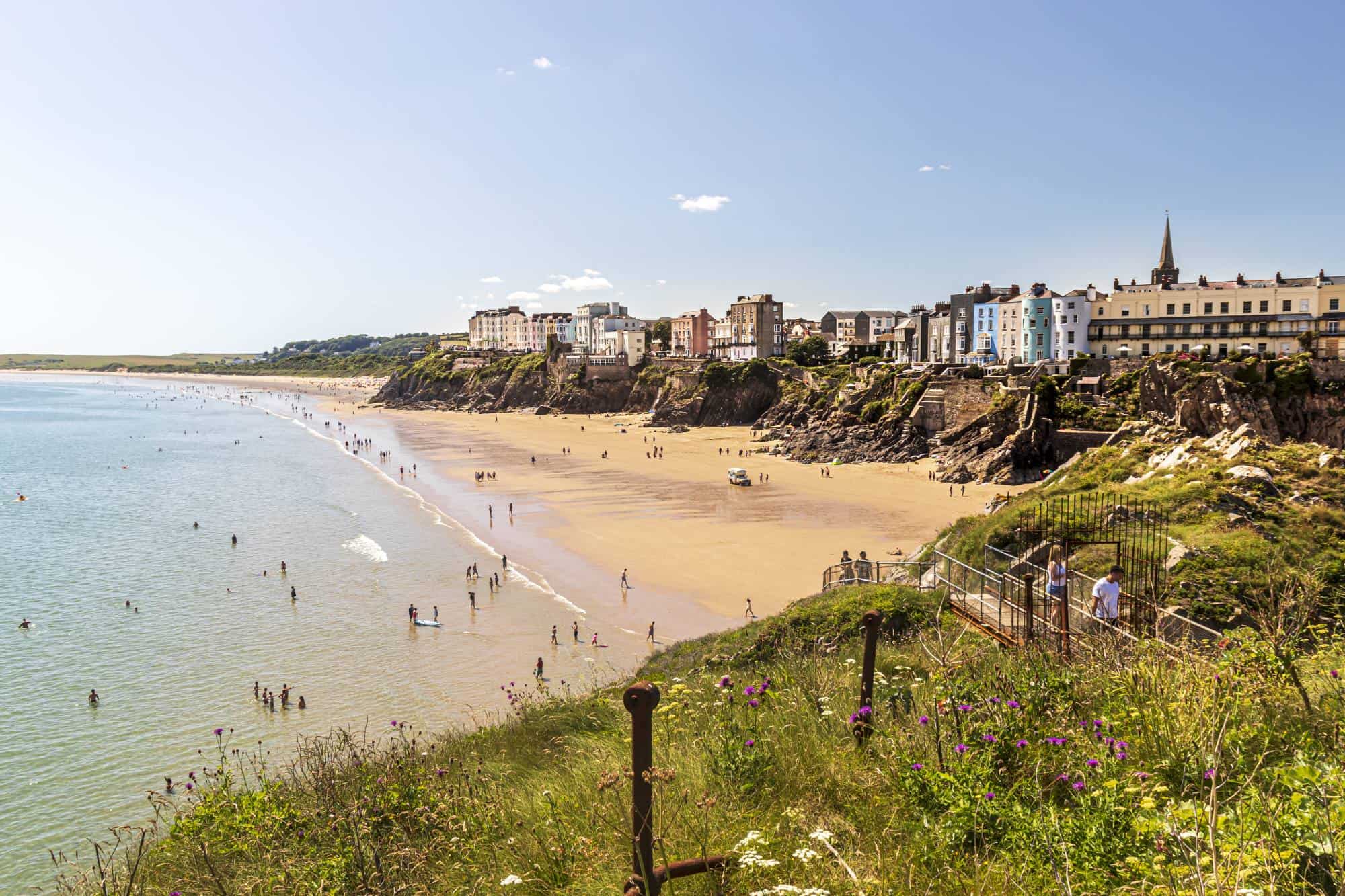
According to livingcost.org, Wales is a strong competitor to England when it comes to the best destination to live in the UK. The livability scores are very close for both countries, but Wales's cost of living is significantly lower.
It means that living in Wales, you can enjoy a good quality of life for less.
Being on the west side of the UK with the Atlantic as its closest neighbor, the country is a bit wetter than southeast England, but the climate is very mild. Many coastal towns have quite an exotic feel, with their seafronts lined by palm trees and evergreen ornamental grass happily enjoying mild winters.
Wales is the only country in the world with a continuous marked path around its entire coast. Yes, it means you can walk all the way along the Welsh coastline, all 870 miles/1400 kilometers of it. The path is well maintained, the nature is unspoiled and stunning, and the views are unforgettable.
Wales is not just pretty. It's a distinct country with its own national identity and language. Don't worry, though; everyone in Wales speaks English, as it has the same official status as the Welsh language.
Wales is perfect for families as there are a lot of facilities for children. Education is of high quality. Six out of eight Universities in Wales are in the top 100 of University League Tables 2022.
South Wales, particularly Cardiff, and Swansea, is quite a vibrant and economically active region. It is a great option for establishing a business in Wales or looking for good career opportunities.
If you are after a smaller, cozy town, consider Aberystwyth, Bangor, Carmarthen, Penarth, Cardigan, Abergavenny, and Cowbridge.
Anywhere in Wales is an excellent choice for retirees, particularly if you enjoy an active lifestyle and want access to stunning nature walks, amazing beaches, and picturesque hills.
For more details, read our Best Places To Live In Wales guide. If you are interested in retirement, our Retire To West Wales guide is full of interesting facts and details about retiring to the region.
Scotland
Scotland is also known for its beauty and wildness. There’s a far more explicit divide between cities and rural areas, thanks in part to the Highlands.

Edinburgh and Glasgow are apparent choices for businesses and career opportunities. The country is currently making a name for itself in the UK’s space industry, meaning there’s a boom of specialist jobs.
Edinburgh was named one of the best cities to live in the world in 2022 in Time Out's annual survey. If you are curious to know more about this spectacular city, read our guide to Living In Edinburgh.
There are dozens of towns in Scotland that deserve your attention, too.
North Berwick, for example, has lovely beaches, great views, and a vibrant town center. It's a good place for families with children as the secondary school is very successful.
Bearsden is another top town. It's conveniently close to Glasgow but is tranquil and peaceful, with excellent family facilities.
Our guide on what it is like living in Scotland is a perfect place to start researching this country. For a detailed overview of where to live in Scotland, head to our Best Places To Live In Scotland guide.
Northern Ireland
Northern Ireland has a fascinating history and is known for its kind and tolerant people. Its capital, Belfast, is the most obvious choice for businesses and jobs. Still, the more rural areas (County Down and County Antrim) are excellent choices for those wanting a peaceful retirement.

Holywood, for example, offers all-town amenities, access to parks, and proximity to the capital. It has a beautiful coast, good train connections to Belfast, and a perfect balance between town and countryside living.
If you are looking to retire to Northern Ireland, consider Armagh. According to the local residents aged 65 and over, it is apparently the happiest county in Northern Ireland.
The city of Armagh is pretty stunning, with all the facilities you need, good schools and plenty to do. It's perfect for families and retirees wishing to have both the bustle of city living and the charm of the countryside.
For a complete overview of various locations in the UK, read our Best Places To Live In The UK guide.
Interesting facts about UK weather and climate
The UK as a whole might be a bit cloudy and rainy, but if you look at various locations separately, you might find that the situation is not so bleak after all.
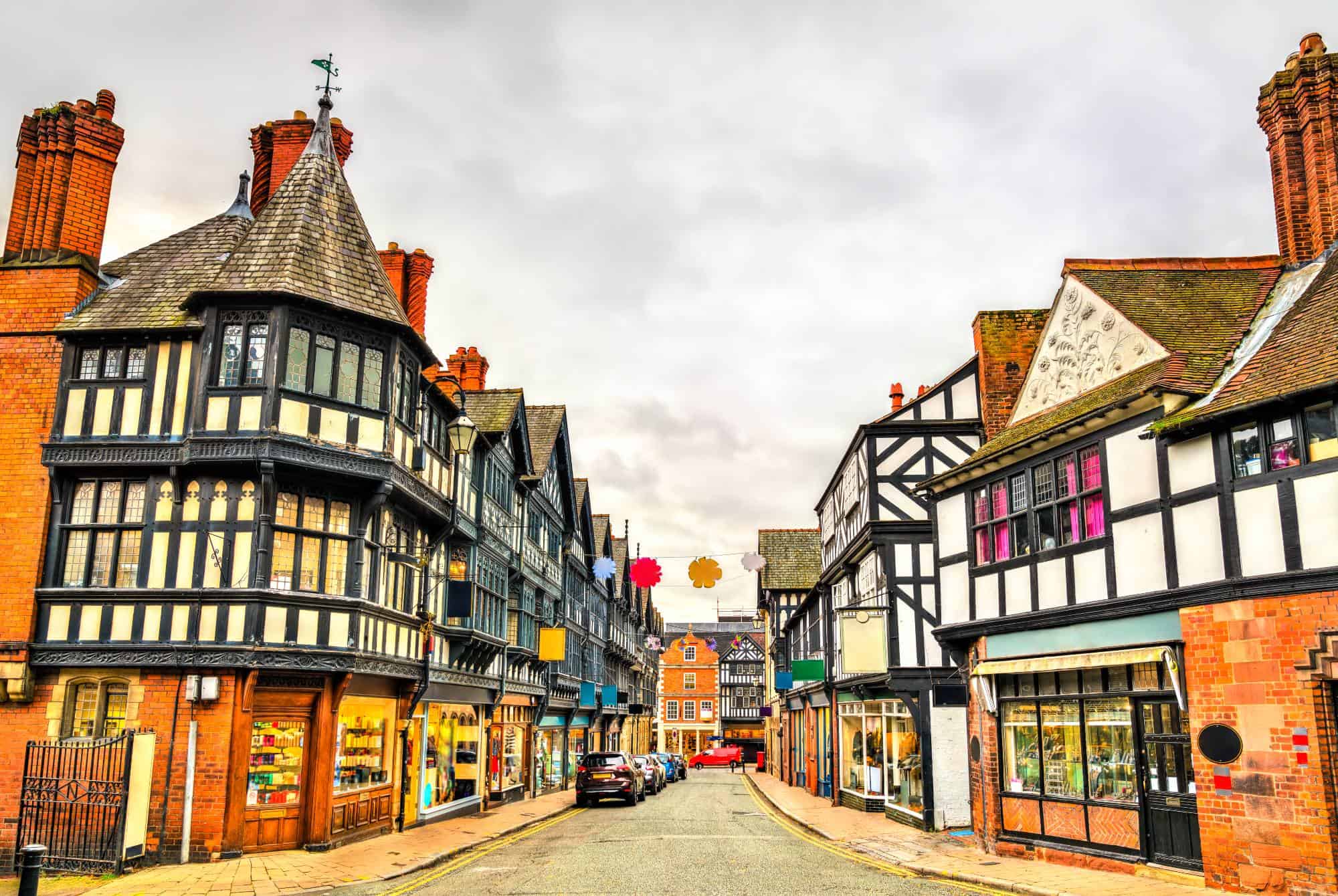
Fact 1: London is drier than Rome
If you have a look at the list of the wettest capitals in Europe, London comes 35th, with Istanbul, Rome, Monaco, Lisbon, Barcelona, and Sofia being wetter than the UK capital. London gets 557.4 mm of rain a year, which is comparable with Malta's capital, Valletta, where they see 553 mm.
Fact 2: There are some very sunny spots in the country
Bognor Regis, a town and seaside resort in West Sussex on the south coast of England, enjoys on average, 1902 hours of sunshine every year. It's, of course, not even close to what Southern Spain or Cyprus get, but still not bad for a country where complaining about the weather is a national sport.
For comparison, Biarritz, a popular seaside resort on the Atlantic coast in France, gets around 1,920 hours of sunshine a year.
Some spots in West Wales also get an incredible amount of sun. Dale, in the far west, is one of the sunniest places in Britain, with over 1,800 hours of sunshine a year.
Fact 3: It can get really hot in the UK in the summer
Yes, some places can get unbearably hot. Cambridge, for example, can reach 35°C-37°C in summer, while in July in London, it can get as hot as 30°C. Cardiff and a score of other cities can also be face-meltingly hot.
Fact 4: You can swim in the sea without getting frostbite and hypothermia (just about)
Sea lovers will appreciate Cornwall in August when the average sea temperature is a balmy 17°C.
In Brighton, on some days in July and August, the water temperature warms up to 20°C and above.
The water in a sunny and picturesque Tenby in Wales can get as warm as 18°C in July and August.
Temperatures aside, there are some stunning beaches in the UK. Even if you are not brave enough for a dip, a beach day out is a huge pleasure. Just don't forget a suncream; the sun here is powerful enough to burn you lobster-red very quickly.
Life in the UK: useful tips
Many expats have a certain perception of the UK based on TV shows. Despite it being popular in TV and film, and as a tourist destination, there are some things you’ll only find out by living here.
Luckily, we’ve got the real facts for you.
1. The British love to drink
Sure, most countries enjoy a drink or two, but the British are on another level. Many (particularly European) countries consider being drunk to be gauche, but the British love it. Visit any city center on a Friday night for a taste of British drinking culture.
2. Hopefully, you like football
This myth is pretty accurate: football (soccer) is a religion for many British people. You’ll inevitably be asked your favorite team and have to put up with matches on the TV at your local drinking establishment.
3. Buying a property is convoluted
If you’re lucky enough to be buying a property in the UK, be prepared for a lengthy process. There are numerous steps involved, and the need for lawyers on both sides means everything drags on for months.
4. National Trust membership is worth it
The National Trust manages the majority of the UK’s heritage sites, beautiful parks, forests, and impressive mansions full of historic treasures. Visiting such sites is one of the favorite pastimes for the locals. Buying a membership gives you access to all of them, so it’s a great idea if you love historical sites.
5. British food culture is… interesting
Chicken Tikka is the UK’s national dish despite being an Indian-inspired dish. But this is a country that used to count jellied eels and offal amongst its go-to dishes, so at least it’s moving up in the world.
6. Accents vary wildly
Here, you only need to travel a few miles up the road to find a vastly different accent. If English isn’t your first language, be prepared for some interesting conversations.
7. The UK is home to the longest town name in the world
Llanfairpwllgwyngyllgogerychwyrndrobwllllantysiliogogogoch (Llanfair PG) is a town in Wales that takes the award for the longest town name in the world. While not a defining part of British culture, it’s certainly an interesting tourist fact.
8. British people are nicer than they seem
Despite being the home of football hooliganism, the UK’s population is much nicer than they seem. If you settle down in a smaller town or rural village, most people will happily make you feel welcome.
9. The British have their own perception of distance
Americans, Canadians, and most Europeans will notice this. In the UK, a 30-minute car ride is considered longer than average, and a 4-hour drive is a day’s worth. Despite this, it only takes 15 hours to drive from one end of the country to the other.
10. The UK is very diverse
The UK has a long history of immigration, resulting in a very diverse population. It’s illegal to discriminate against people based on race or ethnicity (among other characteristics), which has led to the UK being generally very tolerant.
Final thoughts on living in the UK
Living in the UK might not offer the same laid-back lifestyle and glorious weather you’ll find in many other countries that we feature. However, it’s still an attractive prospect for skilled workers and other eligible visa holders.
It has high living standards, a mild climate, lovely towns and villages for a healthy, active retirement, and good opportunities for businesses and professionals.
When assessing your options for living in the UK, it can help to travel around to check out different areas. Luckily, this isn’t too difficult because it’s a fairly small country!
You might find helpful:
- Living In London As An Expat
- Living In Wales
- Living In Scotland
- Best places to live in the UK
- How To Get A Well-Paid Job And A Skilled Worker Visa In The UK
Helpful external links:
- Applying for a visa to come to the UK - UK government advice
- NHS surcharge information
- How to enroll your children in a UK school - school admissions
Secure Peace of Mind with Best-Value International Health Coverage
International Citizens Insurance provide free, no-obligation quotes from the leading international health insurance providers with plans tailored to meet your needs. Trusted by thousands of expats worldwide.




